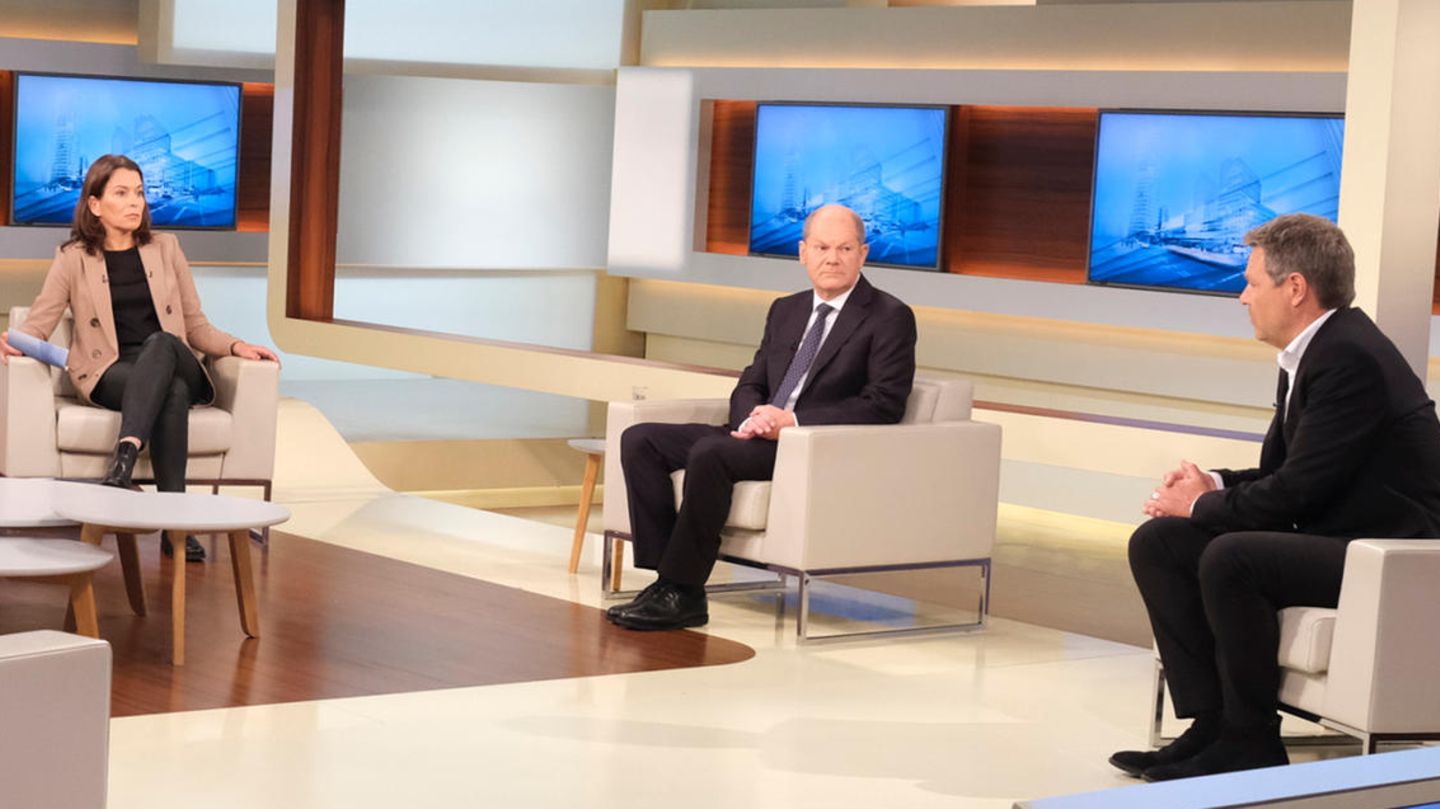Who is actually financing the “departure” of the possible traffic light coalition? Good question. No Answer. Anne Will had put the topic on the agenda, but preferred to get lost in climate policy.
By Sylvie-Sophie Schindler
Hello, Mr. Lindner? Where are they? Why aren’t you there? Your coalition buddies Olaf Scholz and Robert Habeck have long been sitting in the studio of “Anne Will”, and what are you doing meanwhile, Porsche unlimited?
Speaking of which. What about the speed limit 130? Mr. Habeck, that’s your business, you could slow down Lindner’s Porsche, why don’t you do that? Is everyone doing what the FDP says now?
Ms. Will, this has been going on for days, this question, I want to “put it on record”, you know who wins, who loses, you know, that annoys me, “and why the speeding on the autobahn, probably similar to that Gun ownership in the US, it is upheld, doesn’t make sense to me either. “
But, Mr. Habeck, that was an election promise, wasn’t it said, what price do you pay in the coalition negotiations?
Ms. Will, “if you ask, is the speed limit too high a price compared to anything else, then I say no, it is not.”
The talk guests (in alphabetical order):
- Robert Habeck, party chairman Bündnis 90 / Die Grünen
- Rainer Hank, business journalist
- Claudia Kemfert Head of Department Energy, Transport, Environment at the German Institute for Economic Research
- Ursula Münch, political scientist
- Olaf Scholz, Vice Chancellor and SPD candidate for Chancellor
Great challenges await the possible coalition of the SPD, Greens and FDP: Many billions of euros will have to be invested for the announced “departure”. But where should the money come from? How high will the burdens be for the citizens? So Anne Will asked on Sunday evening: “The traffic lights are on the move – can red-green-yellow be financed?”
“Not a cute event”
Alone: She seemed, and not for the first time, to have forgotten the subject of her own program. Just why? What shoud that? The people in Germany would like to have some answers. But Will, who also tended to unwind the questions and drifted through the debate, didn’t want to know once: How are you going to pay for all of this? Instead, the moderator and guests rushed back to the topic of climate.
Will to Habeck: “Do you think Scholz is a climate chancellor?” She pointed out to the Greens leader that he had one day disparagingly expressed himself about the election posters – “mockery posters” – on which Scholz had portrayed himself as climate chancellor. Habeck now has other tones on it. “Together we will be a good climate government,” he said. And: “If Olaf Scholz is elected Chancellor, he will be Climate Chancellor because we are in the government.”
Scholz left: “I think we can stop climate change with what we set out to do.” He made it clear that Germany has a role model function. It is the largest renovation since the industrial revolution. Getting out of coal-fired power generation and the use of atomic energy is “not a cute event”. After all, the CDU is gone, which has always stood in the way of renewable energies.
“But you can not only blame the Union for that, you were also part of the grand coalition,” said Ursula Münch. And asked whether all the prime ministers would participate in the coal phase-out. Scholz gave the impression that there was no question of that.
Claudia Kemfert was disappointed with the exploratory papers: “There would have been more inside.” As it looks, it will not be possible to achieve the climate targets of 2030: You have to readjust. “She pointed out that two percent of the area in every federal state must be expanded with wind turbines:” That means at least three times the current rate of expansion. ” With a view to resisting Bavaria, she affirmed that no federal state should be excluded. Münch raised the question of general acceptance: “There will be public protests.”
Scholz was undeterred. This is also the case with Rainer Hanks’ argument that “Germany is pretending to be able to stop climate change, and you also know, Mr Scholz, that this is an international coordination problem”. It therefore needs an international “climate club” with mutually binding contracts. Scholz agreed: “We will only be able to stop climate change globally.” But Germany also plays an important role because “it has the economic strength and scientific capacity to develop technologies that can be used worldwide.”
Anne Will doesn’t hook
And who will now be finance minister? Habeck: “We don’t talk about that, we talk about content.” And added: “I would never tell the untruth.” Hank refused to accept: “We don’t think you don’t care about it.” Habeck, however, insisted that the division of departments was not an issue and finally got into the poetic: “This is the magic that nobody knows.” So: Nobody knows who occupies the Ministry of Defense and who is in charge of agriculture. “Will:” But we’re talking about the Ministry of Finance. “
Habeck preferred to say that in the tax and financial policy area “ideas clash”. There are, and it has to be said honestly, no major movements, so there would be no reforms in property and inheritance taxes with the FDP, while the FDP was unable to prevail in the lowering of corporate taxes.
Scholz, on the other hand, trumped the fact that he had so far achieved a lot of what he had promised in the election campaign, including a stable level of pensions, basic child benefits, increased housing subsidies – and the minimum wage of 12 euros. He also spoke of the so-called “citizens’ money”, which should replace Hartz IV. The sanctions remain? “We demand a right to participate,” said Scholz. Will didn’t ask for any further details.
Hello, Mrs. Will, what was the matter with you anyway? Is there the promised topic next week? Oh, there is Caren Miosga, what is it today with the daily topics? Anne, we have two bosses as guests today: Barack Obama meets Bruce Springsteen. Anne thought that was “great”. Well then.
David William is a talented author who has made a name for himself in the world of writing. He is a professional author who writes on a wide range of topics, from general interest to opinion news. David is currently working as a writer at 24 hours worlds where he brings his unique perspective and in-depth research to his articles, making them both informative and engaging.




